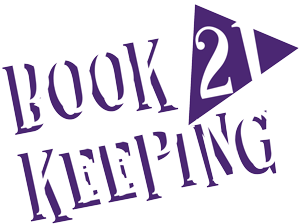When you start a small business, bookkeeping isn’t the first thing in your mind. It might not even be in the top ten things on your mind. You might prioritize taking your business off the ground, generating revenue, building a decent clientele, and keeping up to date on your payments. With so many important things to do, why would you focus on bookkeeping? Especially when it’s something you’ll only need during tax season, right? Wrong! And it’s one of the reasons why 50% of small businesses fail in their first five years.
Many new business owners and entrepreneurs focus on their core competency, and their competitive edge (what makes them stand out from the crowd). And that’s a very understandable mindset. After all, that’s how you are supposed to carve a place for your business in a market and attract clients and customers. But that’s not an excuse for being lax about some of the fundamentals of running a business. And bookkeeping is one of those fundamentals.
Bookkeeping for Small Businesses
This article will be focused on bookkeeping for small businesses. Large-scale businesses and organizations usually have in-house accountants and bookkeepers, and SOPs to take care of this very important part of running a successful business. On the other hand, small businesses need to preserve their resources, both financial and human, and thus a handful of people (including the owner) end up with a bunch of responsibilities each. In a situation like this, it’s easy to lose sight of bookkeeping task, since it doesn’t seem urgent (until it’s time to do the taxes, that’s when it feels like a ticking time bomb).
But if you understand how important bookkeeping is, you will give it the time and attention it deserves, right from the beginning.
Importance of Bookkeeping
Bookkeeping’s one-line definition is quite apt: Keeping records of all financial transactions, ideally on a daily basis. It includes noting down all the sales and purchases of the business, daily inventory, and all the relevant receipts. That includes business to business and business to customer transactions. A well-kept set of books offers you a detailed picture of your business’s finances and raw data for accounting.
Tax Preparation
Tax preparation is what most people think bookkeeping is primarily about. While it’s not the only function of bookkeeping, it does help with tax preparation. It’s important to understand the bookkeepers themselves don’t usually help you prepare taxes. But if your bookkeeping is accurate, thorough, and up-to-date, tax preparation can be a breeze, compared to the usual storm it is when you have to find records of transactions that took place months ago.
Even if you are not a number’s person, you can learn to do your taxes. But most business owners like to play it safe and bring in a CPA to do their taxes. Whether you are doing them yourself, or you have hired external help, proper bookkeeping is essential for accurate tax filing and payment.
Business’s Performance
Bookkeeping can help you determine how your business is doing on a day-to-day basis. If you update your books every time a transaction occurs, you will have a clear idea of how much cash is flowing in and out of your business. This information, while useful by itself, also offers you insights about how you can cut your expenses or which parts of your business are most profitable. That’s how the founders of McDonald’s were able to trim down their menu to three essential items and optimize their productivity.
Proper Budgeting
Budgeting is usually the first step in starting a business. You know what resources you have at your disposal, what your expenditure is, and how much business income you can count on. When your business starts, you usually have to create a new budget, according to your new cash flows. In any case, without a proper budget, you can neither create an effective expansion plan nor control your expenses for maximum profitability. And the accuracy of your budget is tied directly to the data you have from bookkeeping.
Organization and Planning
IRS isn’t the only entity that’s interested in accurate record-keeping of your business. If you are planning on expanding your business and bring in investors, or you require a loan for business expenditure, investors and lenders might ask to see your books. This will help them to vet you as a credible investment/borrower, and it also shows that you are organized about running your business, and you have your fundamentals covered. On the flip side, a poorly kept set of books will either present you as someone who is trying to hide their business’s financial problems in the messy data, or someone too unorganized to be trusted with additional resources/funding.
With the information you have on hand, thanks to bookkeeping, you can create a successful business plan, and actionable strategies to enhance your business. Without that data, you might overstretch your resources and start incurring unnecessary debt.
Profitability and Growth
We are not saying that the profitability and growth of your business are directly dependent upon bookkeeping. But it is one of the most important factors that decide the success of your business. Maintaining an updated set of books is like having your finger on the pulse of your business’s finances. And it’s a crucial piece of information because, without it, you cannot sustain the growth of your business.
Bookkeeping also offers you insights about your expenses, and areas where you’re bleeding out most of your cash and resources. You can use that information to organically increase your profitability, i.e., by cutting your expenses. Similarly, accurate profit projections can help you attract investors and get approved for crucial loans with favorable terms.
By itself, the act of bookkeeping may not impact your profitability and growth. But it offers the building blocks (of information) you base your business major financial decisions on. When you have all the important insights about your financiers and your cash flows (through bookkeeping), you can focus more on your business strategies and core competencies. You can also adjust your strategies and plans, based on the updated data you get from bookkeeping.
Staying Afloat
Thousands of small businesses get snuffed out during recession and severe market crashes, primarily because they don’t have a good handle on their business’s cash flows. Some of the things (like low demand) are out of the hands of the business owners, but controlling cash flows is. And it can be the difference between a business that stays afloat in a crisis, and the one that goes under. Bookkeeping helps you control and improve your business’s cash flows.
Common Bookkeeping Mistakes
Understanding common bookkeeping mistakes is just as important as learning its merits. You can avoid making these mistakes and ensure your bookkeeping process is smooth and thorough.
Mixing Business and Personal Income: It’s very common in sole proprietorships. Since sole proprietors have to file their business’s taxes with their personal ones, they sometimes mix both records. Which makes it very difficult to catalog all expenses and incomes, when at long last, they start arranging their books for tax season.
Self payments vs. Business Expenses: Many new business owners record self payments (personal income) as business expenses. This practice can distort your income, and consequently, your tax numbers. In worst-case scenarios, you may end up underreporting your tax obligations, triggering an audit.
Unprofessional Professionals: To save expenses on an “unnecessary” bookkeeper, our outsourcing the task to a professional service, many business owners try to maintain their books themselves. It’s a good practice, provided that you know what you are doing, and you are OCD about record keeping (or at least, adequately diligent). Even then, you are liable to make many mistakes. And if you think that hiring a CPA to do your taxes will automatically fix all the mistakes you made in a year’s worth of bookkeeping, you are wrong. A CPA can only work with the data you provide them, and that data is lacking, your tax filing won’t be flawless. So if you are doing it yourself, make sure you get educated/trained as much as you can before handling this important task.
Poor Documentation: A major part of bookkeeping is keeping track of all the accompanying documents. Invoices, receipts, bills, deposit slips, credit card statements, and canceled checks, in short, every piece of evidence that supports the numbers in your ledgers should be kept. A good practice is to keep a digital copy of all these documents.
Conclusion
Bookkeeping is important. Whether you do it yourself, outsource it, or hire/cultivate an in-house resource for it, bookkeeping needs to be done, and properly. It gives you the business owner, a clear and complete picture of your business’s finances. Without it, you might as well be running your business with one hand tied to your back. You can’t make full use of your resources, and your business’s potential, unless you see the clear picture that bookkeeping provides you.

